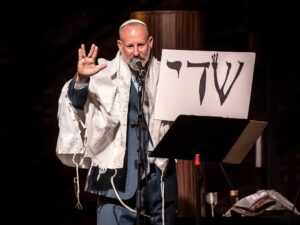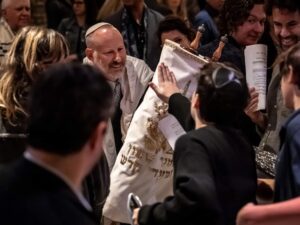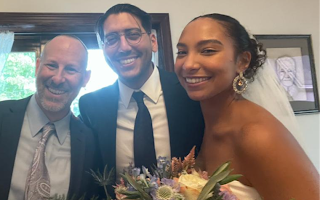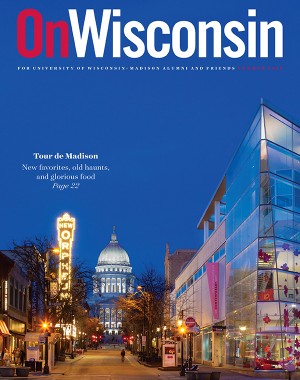“There is such a beautiful blend, in which Brenner brings the images of our tradition and the general culture together in an amalgam that is always inspiring and makes access easy.”
– Reb Zalman Schachter-Shalomi z’l (1924-2014)
Background and Education
Daniel S. Brenner was born and raised in Charlotte, North Carolina. He received a B.A. in Philosophy from the University of Wisconsin, studied in Jerusalem at the Pardes Institute for Jewish Studies, and earned both an M.A. and rabbinic title from the Reconstructionist Rabbinical College. Brenner furthered his studies with the Modern Orthodox theologian Rabbi Yitz Greenberg and went on to serve on the faculty of CLAL- The National Jewish Center for Learning and Leadership in New York City from 1998 – 2003. At CLAL he authored works on medical ethics with Joseph Fins MD (Chief of the Division of Medical Ethics at Weill Cornell Medical College) and Rabbi Tsvi Blanchard (Embracing Life and Facing Death, A Jewish Guide to Palliative Care, 2002) developed a series on neo-Chassidic spirituality with the late Rabbi Zalman Schachter-Shalomi, and co-led (with Dr. David C. Kraemer) CLAL’s training program for rabbinical and graduate students.
Building Bridges
In 2003, Brenner became the first Rabbi to direct a center of learning at Auburn Theological Seminary, a historic Presbyterian seminary on Manhattan’s Upper West side. At Auburn, Brenner spearheaded the creation of the nation’s first doctoral-level program for clergy who work in the context of religious diversity, developed a program for religious leaders with Columbia University’s Center for the Study of Science and Religion, and created a religious diversity curricula for Face to Face/Faith to Faith, Auburn’s international youth leadership program. Brenner’s efforts teaching Christians about the Jewish community’s relationship to Israel garnered him a Simon Rockower Award for Excellence in Jewish Journalism.
Championing a DIY model of Jewish Life
In 2007, Brenner became the vice president, education of the Birthright Israel Foundation and the founding executive director of Birthright Israel NEXT, an organization dedicated to engaging young adults in Jewish community life. Under his guidance, Birthright reached over 50,000 young Jewish adults each year and developed partnerships with JDC, Hazon, Feeding America, Hillel, Moishe House, JDub, PLP, Mechon Hadar, Pardes, Shalom Hartman Institute, Yiddish Book Center, Nextbook, the Israel Ministry of Foreign Affairs, and dozens of local Jewish community organizations. As part of this effort, Brenner launched Next Shabbat, a grassroots program that sponsored over 20,000 home-hospitality events and eventually spun off as its own organization (One Table). In 2009, he was named by Newsweek Magazine as one of America’s fifty most influential rabbis.
Training Mentors and Educators
In 2011, Brenner left Birthright Israel to join the Jewish educational organization Moving Traditions. In this capacity, Brenner is currently advancing a national mentorship program for teen boys, pioneering work in family education around the rite of passage of b’nai mitzvah, and training leaders of Jewish schools, camps, and youth groups. The mentorship program he is spearheading, Shevet, was featured in a national news story on NPR, and his work training camp staff on issues of sexual consent was featured in The Washington Post.
Embracing Creativity
In addition to being a Jewish educator, Brenner has led an active creative life as a writer, poet, musician, and dance innovator. In college, Brenner was in an improvisational comedy ensemble with the late actor and comedian Chris Farley and in rabbinical school he developed a series of touring Chassidic folktales for Philadelphia’s Theatre Ariel, created a one-man-show about rabbinical school called “Faster, Rabbi, Drill! Drill!”, and developed works that eventually were staged in two New York theaters (Vital Theatre and the All Out Arts Festival NYC.)
Since 2018, Brenner has been the spiritual leader for Because Jewish, leading a series of holiday events in some of New York’s premier concert venues with musicians including Jeremiah Lockwood, Yula Be’eri, Jordan McLean, and Anthony Mordechai Tzvi Russell and hosting guest artists from Wilco, Phish, Phil Lesh & Friends, Patti Smith Group, Real Estate, Iron & Wine, Balkan Beat Box, Guster, Disco Biscuits, Antibalas, Jose Jones, and other bands. His essays and his commentaries have appeared in the New York Times, Jerusalem Post, KtB, Huffington Post, Iconia and NPR’s Infinite Mind. His band Midnight Nosh has been featured in The Yiddish Daily Forward, and his touring cultural performance Klezmer Aerobics was a select pick of the cultural arts section of the New York Times.
Brenner and his beloved, Dr. Lisa Silberman Brenner, are parents of three young adults – Noam, Jonah, and Adira.

Profiles of Rabbi Daniel Brenner
Crazy for Klezmer in On Wisconsin
Fanfare for the Common Man from The Jewish Week
Wikipedia: Daniel Brenner
ELI TALK
What does it mean to remix Judaism?
By Rabbi Daniel Brenner
King Tubby, Lee Scratch Perry, DJ Kool Herc, Grandmaster Flash – these Caribbean musical pioneers were the first to take crates of old records, a mixer, and a pair of turntables and spin sweet musical gold. From afro-Cuban, reggae, calypso, soul, rock & roll, and disco records they extracted riffs and beats and recorded new arrangements of sound that sparked the global dub and hip-hop wave. Eventually, DJs would remix hundreds of thousands of songs using the techniques developed by these pioneers – bringing new life to decades of popular music and creating a vast new genre of musical creation.
What is it to remix?
To remix is to value the past, to collect the multiple layers of the past, and to actively engage with the past.
To remix is to fall in love with particular parts of the past, to reject some parts of the past, and to discover new juxtapositions and relationships.
To remix is to spend time with the past – and at times to transport one’s self to the past.
And to remix is to create something new – a fresh arrangement that does not replace the past, but comments on it, subverts it, reimagines it, re-purposes it…and brings it into this moment.
As a rabbi, I spend a lot of time remixing Judaism and learning from the vast network of other folks who are also remixing Judaism in one way or another. For me, the vast spiritual, literary, musical, legal, ritual, mystical, and even culinary elements of the Jewish tradition are like a 3,500 year old record collection that yields new treasures in every generation. Let’s put on some tunes and dance.


